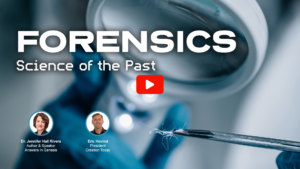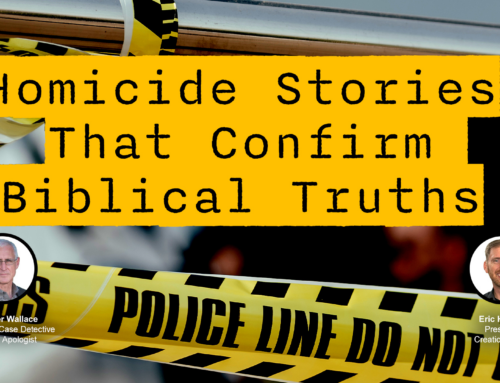What comes to your mind when I say the word, “science”? For me, it’s beakers, lab coats, and strangely-colored chemicals whose names are hard to pronounce. Maybe you had similar thoughts, and, if so, you would be thinking about observational science.

On the flip side, maybe you thought about origins of the world or archaeologists digging up bones and ancient artifacts. If so, then you, my friend, would be thinking about historical science.
In the Creation Today show, “Forensics: Science of the Past”, Dr. Jennifer Hall Rivera explains the difference between these two types of science and why it’s important to know in relation to forensics. According to Dr. Rivera, historical science refers to the study of something that is unobservable in the original form, like, for example, a crime. (Are you starting to see now why we brought on a forensic scientist to talk about this?)
In the words of Dr. Rivera, “forensic science can very much be compared to something like the study of fossils.” If we started to look at the study of origins more like the way forensic scientists look at studying a crime scene, we would find that questions surrounding the beginning and evolution all suddenly become so much clearer.
For example, Dr. Rivera breaks down so many amazing science-y things such as DNA, hair analysis, and fingerprints, but her main focus is on teaching how the forensic (historical) study of these fields of observational science provide direct confirmation of the truth of God’s Word. Touching on everything from the vast differences between the physical characteristics of humans and animals to the concrete testimony of God’s Word, Dr. Rivera leaves no stone unturned. When you hear her section on fingerprints, your jaw will drop!
The Bible says that God is a true and faithful Witness, so, very technically speaking, we do not need evidence to prove that God’s account is true. But the cool part is, we have direct confirmation of and evidence that backs up the Biblical account, and Dr. Rivera does an incredible job explaining this concept. If you want to channel your inner detective and learn science at the same time, you’re going to want to take some time to watch this fun and engaging show.







